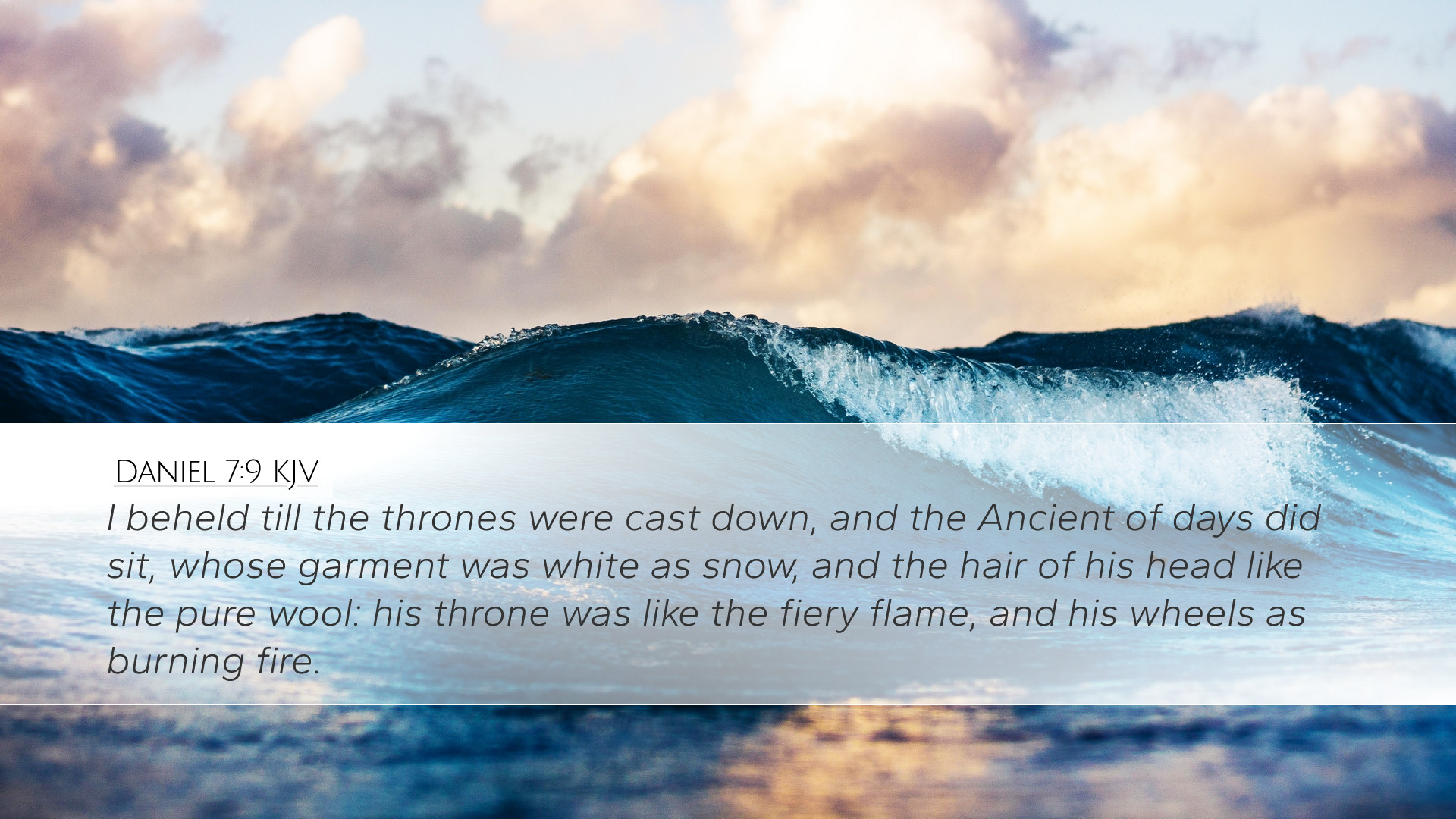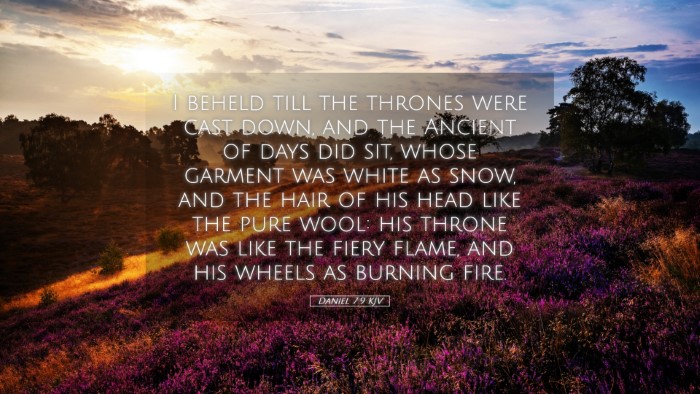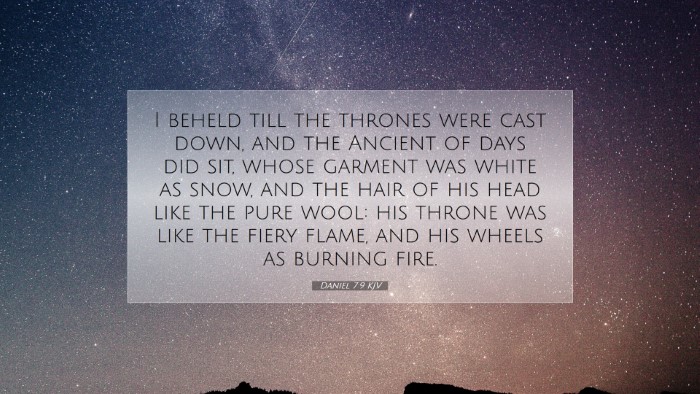Commentary on Daniel 7:9
Daniel 7:9 states: "I beheld till the thrones were cast down, and the Ancient of days did sit, whose garment was white as snow, and the hair of his head like the pure wool: his throne was like the fiery flame, and his wheels as burning fire." This verse introduces us to a profound vision that Daniel experiences, revealing significant theological and eschatological truths.
The Ancient of Days
The title "Ancient of Days" is one of the most striking elements of this passage. Matthew Henry emphasizes that this title denotes God's eternal nature and His authority over time and creation. He is not bound by the limitations that govern human existence. The picture of one who has existed before time and will exist after its end speaks to His sovereignty and majesty.
Visibility of the Heavenly Court
In this vision, Daniel sees the thrones being set in place, indicating the establishment of divine judgment. Adam Clarke notes that in the imagery presented, there is a cosmic courtroom where God presides as judge. The setting emphasizes His righteousness and the impending judgment on the nations represented by the beasts earlier in the chapter.
The Garments and Hair: Symbolism
The description of God's garments being "white as snow" and hair like "pure wool" invoke images of holiness and purity. Albert Barnes points out that these descriptors reflect God's unapproachable holiness, indicating that He is the perfect judge, free from all sin and imperfection. His purity contrasts sharply with the corrupt nature of the earthly kingdoms represented by the beasts.
Throne of Fire
The throne's comparison to "fiery flame" suggests judgment and authority. Fire is a biblical symbol often associated with purification and judgment. Matthew Henry notes that God's reign is not only powerful but also purifying. The reference to "wheels as burning fire" furthers this imagery, representing God's omnipresence and His active participation in the affairs of men.
Theological Implications
This verse is replete with theological implications that are essential for understanding God's nature and His governance of the world.
- Eternality of God: The title "Ancient of Days" underscores the eternal existence of God, which is crucial for understanding His authority and the certainty of His promises.
- Holiness and Purity: The imagery of white garments and hair embodies God's holiness, reminding believers of the necessity of purity in their approach to God.
- Judgment: The fiery throne serves as a stark reminder of God's role as the ultimate judge, where justice will be meted out with absolute fairness.
Application for Modern Believers
For pastors and theologians, this passage invites a deeper exploration of God's nature and the significance of His judgment. Albert Barnes suggests that it should lead to a posture of reverence and awe in worship, reminding believers that they serve a God who is powerful and just.
Students of the Bible can observe that the imagery presented in this chapter is not only descriptive but also prescriptive for understanding eschatology, as it speaks to the ultimate culmination of God’s plan for humanity and the establishment of His kingdom.
Conclusion
In conclusion, Daniel 7:9 offers a majestic vision of God as the "Ancient of Days," invoking awe and reverence. The characteristics described—the purity of His appearance, the fiery throne, and the establishment of judgment—culminate in a powerful message about God’s sovereignty over history. For the church, these truths serve as a foundation for faith, worship, and understanding the righteousness of God's kingdom.


